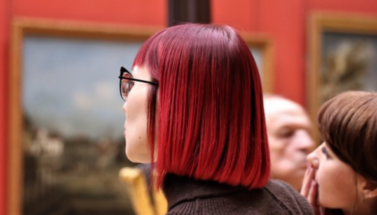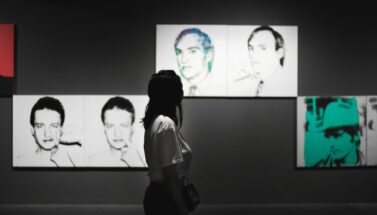A Practical Guide to Curating

A Practical Guide to Curating
with Maeve Mulrennan
*Video-conferences every Thursday at 7pm Central European Time. Recordings will be available in case you miss a live session!
DESCRIPTION
This course provides the basic tools to curate in the art field from start to finish. It examines the ideas and practicalities of curation, looking at what curating is and its potential, followed by practical sessions on developing a proposal and managing a project. The course includes two exercises, one research based and the other project management based.
Following the course, participants will learn practical tools to research and develop a curatorial proposal, project management skills and managing their curatorial practice. This course is an ideal primer for those who want to get started making exhibitions.
PROGRAM
Week 1: Role of the curator
- What are your expectations of curating?
- What do curators do? Types of curators, difference between project manager, artists as curator, commercial gallerist, museum. Different models of curating
- Different approaches to curating: what can be done, how your work fits into existing gallery / project space models
- Managing & Positioning your curatorial practice
- Curatorial case studies
- Assignment: research a curatorial case study on a solo exhibition by a contemporary curator.
Week 2: Building your proposal with artists
- Developing your proposal / what is your project?
- Researching artists (studio visits, database, techniques)
- Communicating your ideas to artists & developing curatorial ideas with artists
- Writing the proposal
- Inviting artists to participate & defining a working model
- Assignment: Draft a proposal for a curatorial project.
Week 3: Working with a space
- Working in a space; how to get a space, how to propose your project to a gallery
- Insurance, Health & Safety, Transport & Art handling
- Installing: guidelines for working with digital media, digital equipment
- Examples of different layouts of 2D works
- Devising an installation timetable; working with a technician / art handler & artists
- Basic contracts: for artists, gallery spaces & technicians
- The take down; the resources you need, invoices you need to send, other things you need to do to ‘tidy up’.
Week 4: Communicating your project
- The audience: who are they, what do they expect, how to communicate with them on a marketing level and an artistic level.
- What to do with your audience once you have them – public programming and engagement
- Marketing & promotion; mediating your project to the public & the art community
- The Vernissage: practical guidelines on what to do & why
- Engaging a writer / critic
- The importance of documenting your project & different examples
For further information, please visit:https://www.nodecenter.net/course/practical-guide-curating
*Course image courtesy of José Luis de la Parra




